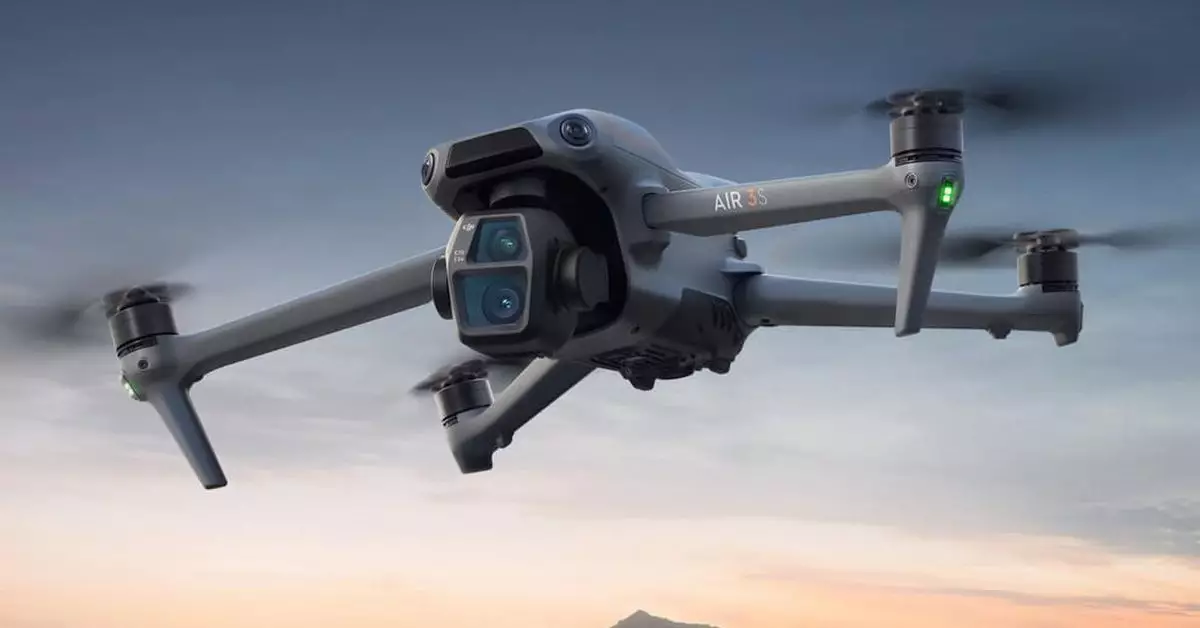DJI, a leading manufacturer in the drone industry, is contending with significant challenges in its quest to import its flagship consumer drone, the Air 3S, into the United States. This predicament arises not from a direct ban on DJI products, but rather from a complex web of regulatory scrutiny—primarily linked to national security concerns involving Chinese-made products. The U.S. Department of Homeland Security (DHS) has focused its efforts on investigating the origins of such gadgets, which has inadvertently affected the availability of DJI’s latest offerings. DJI claims that this scrutiny has resulted in the U.S. Customs and Border Protection (CBP) blocking its drone imports under the Uyghur Forced Labor Prevention Act (UFLPA)—a law aimed at prohibiting goods made with forced labor, particularly products linked to the Xinjiang region of China.
The UFLPA was introduced as a response to reports of widespread human rights abuses in the Xinjiang region, primarily against the Uyghur population. DJI has taken a proactive stance, asserting that it does not engage in forced labor-related practices and has attempted to clarify its manufacturing processes to U.S. authorities. In a recent communication with distributors, DJI vehemently denied the allegations, emphasizing that their manufacturing occurs outside of Xinjiang, in locations such as Shenzhen and Malaysia.
This situation touches upon a broader conversation regarding the ethics of global supply chains and product origins, particularly within the context of technology. As consumers, policymakers, and corporations become increasingly aware of human rights issues, companies like DJI face mounting pressure to provide transparency and ensure compliance with international standards.
DJI’s response to these allegations reflects a strategic approach to mitigate potential fallout. The company has made efforts to communicate with regulators, asserting its commitment to compliance and transparency. By publicly tackling the narrative surrounding forced labor and articulating its operational practices, DJI aims to reassure its consumer base and distributors that it adheres to ethical manufacturing guidelines.
Furthermore, DJI has circulated a detailed blog post outlining its stance that the U.S. customs-related issues represent a misunderstanding, suggesting that the company is committed to working collaboratively with U.S. Customs to rectify the situation. This step not only emphasizes DJI’s eagerness to engage in dialogue but also attempts to relieve some of the reputational pressure that has begun to cloud its standing in the competitive drone market.
The intersection of politics and commerce plays a critical role in DJI’s situation. The U.S. legislative environment is evolving with respect to Chinese technology companies, and there are indications that lawmakers are more inclined to impose restrictions. While the House of Representatives has pursued measures that could further inhibit DJI’s operations, the Senate has demonstrated a more moderate approach by removing a direct ban from the National Defense Authorization Act. This complex legislative landscape suggests that while the immediate regulatory challenges are pressing, the resolution remains uncertain.
Even if Congress proceeds with a ban on drone imports from DJI, existing DJI drone owners would likely retain the ability to use their devices within the U.S. However, any new restrictions could impede further technological evolution for consumers, as the Federal Communications Commission (FCC) could be mandated to revoke authorization for any DJI technology that utilizes radio frequencies.
As DJI navigates the labyrinth of regulatory hurdles and public scrutiny, the company faces significant hurdles not only in terms of logistics and compliance but also in preserving its brand integrity amidst rising geopolitical tensions. The situation underscores an essential truth within the tech industry: regulatory frameworks and ethical considerations are inextricably linked, demanding that companies remain vigilant in not only their actions but also in their narratives.
As it stands, the outcome of DJI’s battle with U.S. import regulations could set a precedent impacting not only the company’s future but potentially reshaping the broader landscape for technology imports from China. The ability of companies to adapt and respond to shifting political narratives while maintaining their core operational values could define the future trajectory of business in an increasingly scrutinized global market.

